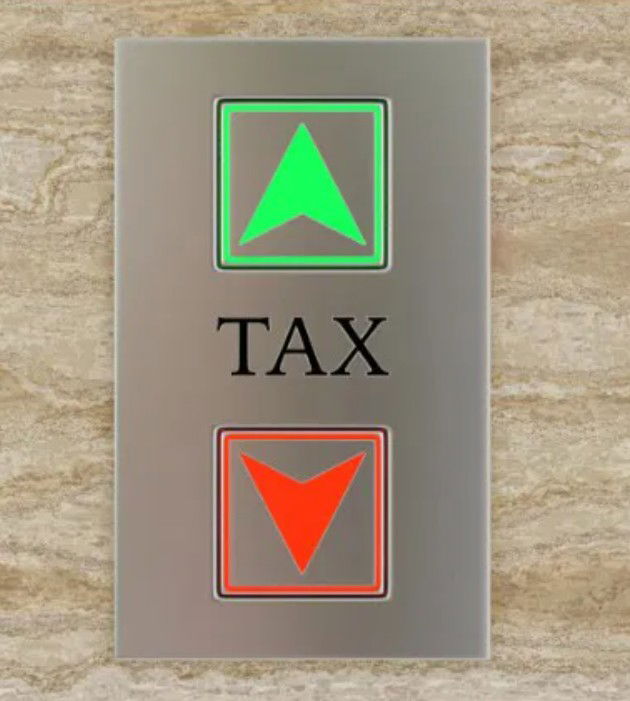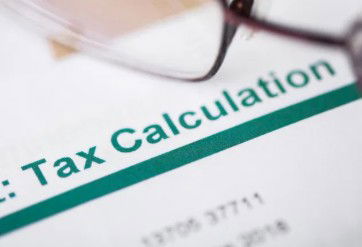Discretionary Trusts – Flexibility and Peace of Mind

Last verified: 14 November 2025 (England & Wales)
Imagine leaving a significant inheritance to someone young, vulnerable, going through a divorce or struggling with money. A cash lump sum could make life easier – or it could be lost, misused, or taken by others.
A Discretionary Trust is designed for these “what if” moments. Instead of handing everything over on day one, you put a trusted team in charge so they can decide who to help, when and how, as life unfolds.
A Discretionary Trust allows you to protect your family while still leaving room for kindness and common sense when circumstances change.
Quick-read summary
A Discretionary Trust:
- Your Will usually creates it and holds assets for a group of potential beneficiaries.
- Gives trustees the power to decide who benefits, when and how much, instead of everyone inheriting fixed shares automatically.
- Can help protect family wealth against divorce, bankruptcy, addiction, pressure from others and, in some cases, inheritance tax.
- Is especially useful where beneficiaries are young, vulnerable, disabled or simply not ready to manage large sums.
- Can last for up to 125 years, allowing wealth to be used across several generations.
With a Discretionary Trust, no one is automatically entitled – but everyone important can still be looked after.
Practical checklist
Use this as a quick sense-check if you are considering a Discretionary Trust:
- Clarify your main reasons: protection from risks, flexibility over timing, or tax efficiency for unmarried couples.
- List who you would like to be potential beneficiaries (children, grandchildren, wider family, charities).
- Choose 2–4 trustees who are sensible, fair and strong enough to say “no” when needed. Consider adding a professional trustee for complex estates.
- Work with your adviser to draft a clear, realistic Letter of Wishes to guide trustees.
- Understand that trustees will need occasional legal/tax advice and must register and report the trust to HMRC where required.
- Review your Will and Letter of Wishes at least every five years, or whenever family or tax circumstances change.
How a Discretionary Trust works
In a typical Will-based Discretionary Trust:
- Your Will directs some or all of your estate into the trust on death.
- The trust names a “class” of beneficiaries (for example, “my descendants”, “my nieces and nephews”, specific charities).
- The trustees legally own and manage the trust assets.
- Beneficiaries do not automatically own the trust fund. They can only receive what the trustees decide to give or loan to them.
Because beneficiaries do not own the assets, those assets are less vulnerable to third-party attacks or the beneficiary's potential misuse.
Why use a Discretionary Trust?
Most reasons fall into two broad headings: protection and flexibility.
Protection
- Protection from themselves:
Some beneficiaries are too young, impulsive or vulnerable to cope with a lump sum. A trust lets money be used for driving lessons, education, clearing debt or deposits rather than fast cars, risky schemes or “fair-weather friends”.

- Protection from other people:
Wealth given outright can be dragged into divorce, bankruptcy or pressure from partners or relatives. Assets inside a correctly drafted Discretionary Trust are often better shielded from these risks. - Protection for vulnerable or disabled beneficiaries:
Some trust arrangements can qualify for special tax rules and may be ignored in means-testing, so they do not automatically reduce state benefits. Specialist advice is essential here.

- Protection against some inheritance tax risks for unmarried couples:
Unmarried couples do not share the same allowances as spouses. In some cases, a Discretionary Trust can help manage this, though it is not a complete solution on its own.

- Protection against some debts:
Even the most prudent people can be knocked off course by events such as bereavement, divorce, caring responsibilities or wider shocks like the credit crunch or COVID-19. In those situations, money held in a properly drafted Discretionary Trust is often better protected and may not be pulled directly into bankruptcy or insolvency proceedings, although outcomes always depend on the individual facts and professional advice.

Flexibility
- Flexibility for beneficiaries:
Trustees can help children at key stages – such as education, first home, and family support – rather than giving them a large inheritance at death. - Flexibility for you:
The trust deed remains relatively stable, but your Letter of Wishes can be updated during your lifetime to reflect new relationships, new grandchildren, or concerns about how someone might use the money.
Can you have a Discretionary Trust for one person?
A Discretionary Trust only works properly if trustees genuinely have a choice. That means:
- There should usually be at least two potential beneficiaries, or
- The beneficiaries should be described as a class (for example, “my descendants”) so that more people can join that class in future.
If there is only one possible beneficiary and no realistic prospect of more, the law may treat them as absolutely entitled, which undermines the “discretionary” nature of the trust. Your adviser will make sure the wording keeps options open.
Who is involved?

- Settlor / Testator
The person whose Will creates the trust and whose assets fund it. In a Will trust, the settlor and testator are the same person. - Beneficiaries
The people or charities who may receive help from the trust. They can be named individually or described as a group (for example, “my children and grandchildren”). - Trustees
The people who legally own and manage the trust assets. They decide when to distribute money or assets to beneficiaries and in what amounts, subject to the terms of the trust. Trustees can be family members, friends, professionals, or a combination of these. It is usually unwise to appoint only beneficiaries as trustees. - Advisers
Accountants, financial advisors, and legal professionals can assist with tax returns, investments, and complex financial decisions. Their costs are typically paid from the trust fund.
Letter of Wishes

The trust itself sets the legal framework. Your Letter of Wishes adds colour and direction:
- It is not legally binding, but trustees are expected to take it seriously.
- You can explain who you would like to prioritise, how much support feels appropriate and what concerns you have (for example, addiction, partners, business risks).
- You can express views on ages for larger payments, education support, deposits and charitable gifts.
A well-written Letter of Wishes is often the difference between a trust that exists and a trust that actually does what you intended.
How long can a Discretionary Trust last?
Most modern Discretionary Trusts in England and Wales can last up to 125 years. In practice, they often end sooner because:
- Trustees may appoint all assets out to beneficiaries, or
- All beneficiaries die, and the fund passes to the named “default” beneficiaries.
How is a Discretionary Trust taxed?

(subject to the current tax regime – this is an overview, not tax advice)Inheritance Tax (IHT) – trust level
- The trust’s “starting value” is the amount transferred from the estate.
- If this is at or below the available nil-rate band (currently £325,000), there are usually no immediate IHT charges on creation and no exit charges in the first ten years.
- The trust is revalued every ten years. If it exceeds the available nil-rate band and reliefs, a periodic charge of up to 6% may apply to the excess.
- When trustees make chargeable distributions, an exit charge can apply, calculated by reference to the last ten-year point.
Residence Nil-Rate Band (RNRB)
- If a qualifying home is left to a Discretionary Trust and stays there long term, RNRB usually does not apply because the property is not “closely inherited”.
- However, if trustees appoint the home (or a share of it) to direct descendants within two years of death, RNRB can often be restored using section 144 of the Inheritance Tax Act 1984.
Capital Gains Tax (CGT)

- There is no CGT when assets pass into a Will trust on death. Trustees inherit at the probate value (the “base cost”).
- CGT can arise when trustees sell or appoint assets whose value has increased above that base cost.
- Trusts have a smaller annual CGT allowance than individuals, and that allowance is shared between certain related trusts.
- Hold-over relief may sometimes defer CGT so that a beneficiary, rather than the trust, pays tax when they eventually dispose of the asset.
Income Tax

- Trustees pay income tax on income received by the trust, often at higher rates once income exceeds a small standard-rate band.
- When income is paid to a beneficiary, it usually carries a tax credit. The beneficiary may be entitled to reclaim some tax or pay extra, depending on their personal tax rate.
- Trustees must keep records, submit annual returns where required and provide beneficiaries with tax certificates.
A Discretionary Trust does not remove tax, but it can spread and manage it – at the price of extra administration and advice.
Case – Chris, Olivia and Jack
Chris sets up a Discretionary Trust in his Will for his children, Olivia and Jack. The trust fund contains cash and investments. Rachael and Jill, both aunties, are appointed as trustees.
Chris wants the trust to help his children get a strong start in adult life. Rachael and Jill are comfortable making day-to-day decisions but prefer to get professional help with tax and legal matters.
- When Jack turns 20, the trustees use the trust to pay for driving lessons and a modest car, then later his university fees, which they pay directly to the provider.
- Olivia, 22, has completed her degree and started work. The trustees decide to clear her student loan and contribute towards a deposit on her first home.
Over time, the trust is used for sensible stepping-stone support rather than one large windfall. The trustees take advice when selling investments and filing tax returns, and these costs are paid from the trust fund.
Planning opportunity – winding the trust. If, by the time Chris dies, Olivia and Jack are older, financially stable and no longer need long-term protection, the trustees might decide to end the trust:
- If they appoint the assets outright to Olivia and Jack within two years of Chris’s death and follow the legal formalities, for tax purposes, those gifts can be treated as if they were made directly in Chris’s Will.
- This may mean no exit charges at that point, and the children inherit at the probate value.
Important notes and limits
- Courts and local authorities can, in some circumstances, look through trusts – especially where they believe they were set up mainly to avoid care fees or defeat legitimate claims.
- Tax rules and case law change. Trusts are drafted based on current legislation and reasonable expectations, not guarantees.
- Changes are usually possible during your lifetime (subject to capacity) and, in some cases, within two years after death using special provisions.
Trusts are powerful tools, but they are not magic shields – they must be used honestly and reviewed as life changes.
For most Fern Wills & LPAs clients, there is no reasonable expectation of needing care, and it is not their primary concern; any care fee impact is a potential side benefit of the main reasons they are considering a trust.
Ethical and governance note
For ethical and governance reasons, Fern Wills & LPAs does not take trustee appointments or provide trust administration or trust registration services. Fern Wills & LPAs does draft trusts that arise on death within Wills. If a trust needs to be operated or registered in the future, we can usually offer general pointers and make introductions to an appropriate specialist, but any support at that stage is goodwill only, subject to availability, and based on the rules and pricing in force at the time. You remain free to choose your own adviser.
Next steps
A Discretionary Trust is not right for everyone. It introduces additional complexity and increased running costs, and the tax rules can be demanding. But for families who need protection and flexibility, it can be one of the few structures that:
- Protects vulnerable beneficiaries without cutting them out.
- Shields family wealth from some of life’s shocks.
- Allows support at the correct times, rather than all at once.
If you want your gift to help – not harm – the people you care about, a Discretionary Trust is worth considering.
If you would like to explore whether a Discretionary Trust belongs in your Will, Fern Wills & LPAs can explain the options in plain English, compare it with other structures and work with your other advisers where needed. Talking it through will help you decide if the extra flexibility and protection justify the additional complexity for your family.


